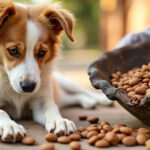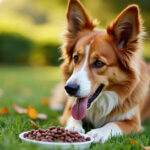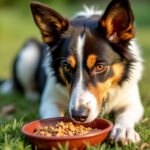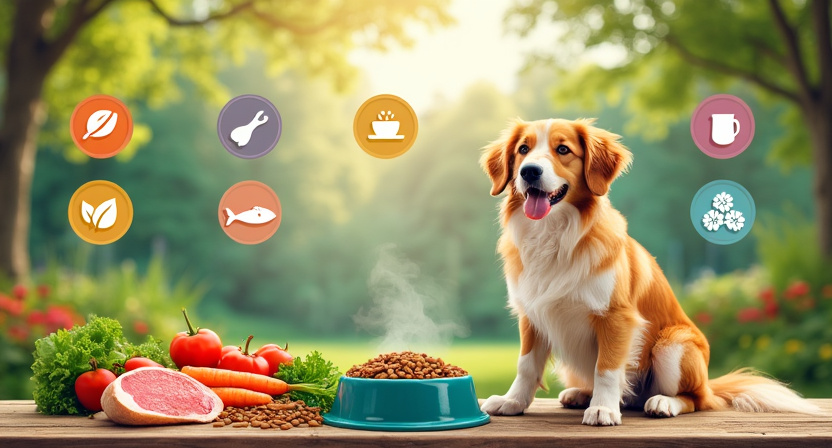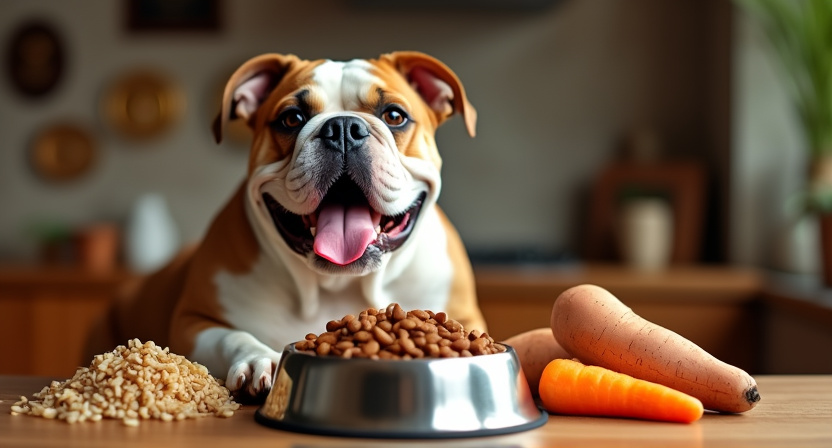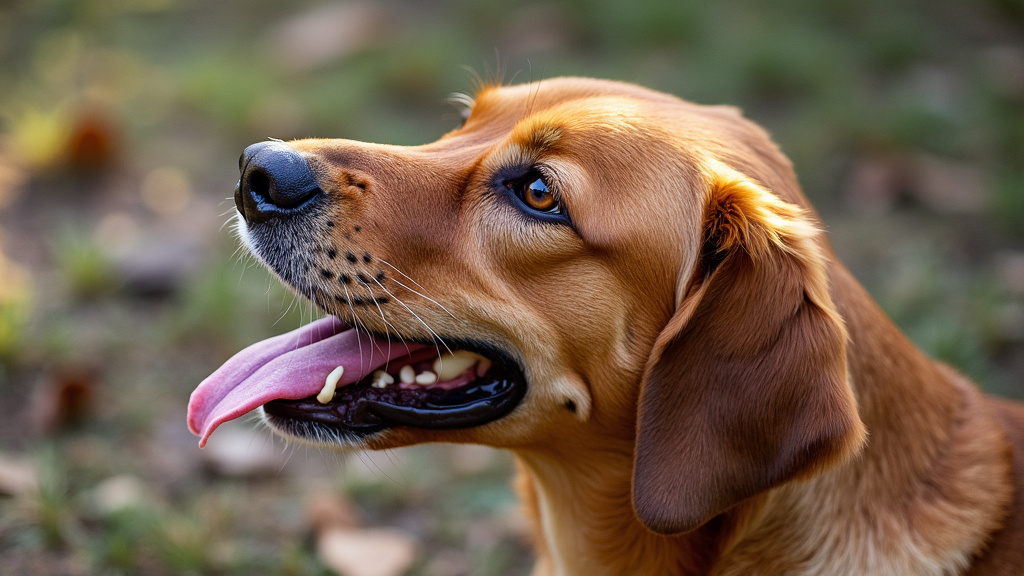Bulldogs need a well-balanced diet to meet their specific nutritional requirements and health issues. High-grade protein, moderate fat levels, and easy-to-digest carbohydrates are crucial for their well-being. Special formulas can also help manage common Bulldog problems like breathing difficulties, skin issues, and joint concerns.
Table of Contents
ToggleKey Takeaways:
- Opt for 28-38% protein and 17-28% fat on a dry matter basis in Bulldog food
- Select smaller kibble or wet food to help with flat-faced eating challenges
- Find foods containing glucosamine and chondroitin for joint support
- Modify feeding times and amounts based on the Bulldog’s age
- Think about limited ingredient diets and ask a vet for personalized nutrition guidance
Understanding Bulldog Nutritional Needs
Balancing Protein and Fat
Bulldogs thrive on a diet rich in high-quality protein, ideally 28-38% on a dry matter basis. This supports muscle maintenance and overall health. However, I’d caution against overdoing fat content. Aim for 17-28% on a dry matter basis to prevent obesity, a common issue in this breed.
For digestive health, I recommend a limited ingredient diet with easily digestible carbohydrates like rice, oatmeal, or sweet potatoes. These options are gentle on your Bulldog’s stomach and promote better nutrient absorption.
Don’t forget about joint health! Look for foods containing glucosamine and chondroitin. These supplements can help support your Bulldog’s joints, which are prone to strain due to their unique body structure.
Feeding Challenges and Solutions for Bulldogs
Addressing Brachycephalic Eating Issues
Bulldogs’ unique facial structure can make mealtime tricky. Their flat faces and shortened airways often lead to eating and breathing difficulties. To help your bulldog enjoy meals comfortably, I recommend opting for smaller kibble sizes or wet food. These choices make it easier for your pup to pick up and chew their food without struggling. You’ll also want to steer clear of dog foods with excessive fillers or artificial additives, as these can cause digestive upset. Here are some feeding tips to consider:
- Select foods with smaller kibble sizes
- Try moistening dry food or using wet food
- Choose fresh food options for improved digestion
- Avoid foods with unnecessary fillers or artificial additives
By tailoring your bulldog’s diet to their specific needs, you’ll ensure they get the nutrition they need without the mealtime stress.
Top Recommended Dog Foods for Bulldogs
Premium Nutrition Options
I’ve identified several top-tier dog food options that cater to Bulldogs’ unique nutritional needs. These choices offer a range of protein sources and specialized formulations:
The Farmer’s Dog fresh pork recipe stands out with its impressive 36% protein and 28% fat content, ideal for maintaining Bulldogs’ muscle mass. For those preferring dry food, Bully Max High Performance Dog Food delivers a robust 33% protein from chicken meal.
Holistic Select and Nature’s Logic provide excellent alternatives, with lamb and chicken meal, and beef meal bases respectively. Their protein content ranges from 28% to 37%, supporting Bulldogs’ energy requirements.
For Bulldog owners seeking breed-specific nutrition, consider these options:
- Merrick’s Texas Beef and Sweet Potato recipe: 38% protein, 17% fat
- Royal Canin Breed Health Nutrition Bulldog Adult: Tailored for Bulldogs’ needs
These foods address Bulldogs’ tendency towards weight gain and joint issues while providing essential nutrients. By choosing high-quality, protein-rich options, you’ll support your Bulldog’s health and vitality throughout their life stages.
Feeding Schedule and Portions by Life Stage
Puppy Feeding (Up to 9 Months)
Bulldog puppies need a specific diet to support their rapid growth. I recommend feeding them 1-1.5 cups daily, split into three meals. Each cup should contain 25-30 kilocalories, with a nutrient breakdown of 22% protein, 8% fat, and 6% fiber. This balance ensures proper development without overfeeding, which can strain their joints.
Adult Feeding (12 Months and Older)
As your Bulldog matures, their nutritional needs change. Adult Bulldogs typically require 2-3 cups of food daily, providing 500-750 kilocalories. The ideal food composition shifts to 18% protein and 5% fat. I suggest dividing this into two meals to maintain steady energy levels throughout the day.
For senior Bulldogs, adjust the portions to about 2.5 cups daily, with a calorie range of 400-600. Increase the protein content to 23%, fat to 9%, and fiber to 7%. This adjustment helps maintain muscle mass and supports digestive health in older dogs.
Remember, these are general guidelines. Your Bulldog’s specific needs may vary based on activity level, health conditions, and body condition. Always consult with your vet to fine-tune your dog’s diet for optimal health.
Special Health Considerations and Diet
Addressing Bulldog-Specific Health Issues
Bulldogs face unique health challenges that can be managed through proper nutrition. I’ll focus on how diet can help with respiratory issues, skin problems, and joint complications.
For respiratory health, I recommend foods rich in omega-3 fatty acids, which can reduce inflammation in the airways. Look for ingredients like fish oil or flaxseed in your bulldog’s food.
To combat skin problems, opt for dog foods containing:
- Vitamin E for skin health
- Zinc to promote coat growth
- Omega-6 fatty acids to reduce inflammation
Joint health is crucial for bulldogs. Choose foods with glucosamine and chondroitin to support cartilage and reduce joint pain.
Natural ingredients are key to mitigating health risks. Avoid artificial preservatives and opt for whole food sources of vitamins and minerals.
It’s important to steer clear of human food, which can upset your bulldog’s stomach. When changing diets, make transitions gradually over 7-10 days to prevent digestive issues.
Keep a close eye on your bulldog’s weight. Obesity can worsen existing health problems, so adjust portion sizes as needed. Regular weigh-ins will help you stay on top of any changes.
Expert Tips for Optimal Bulldog Nutrition
Selecting the Right Food for Your Bulldog
I recommend focusing on foods with named meat protein sources as the first ingredient. This ensures your bulldog gets high-quality protein for muscle maintenance and overall health. For bulldogs with sensitive stomachs, limited ingredient diets can be a game-changer. These formulas reduce the risk of allergic reactions and digestive issues.
To aid digestion, consider moistening dry food before serving. This simple step can make a big difference, especially for bulldogs prone to gastrointestinal problems. Here are key points to remember when choosing your bulldog’s food:
- Look for named meat proteins (e.g., chicken, beef, lamb) as the first ingredient
- Choose limited ingredient diets if your bulldog has food sensitivities
- Moisten dry food to improve digestibility
While these tips provide a solid foundation, every bulldog is unique. That’s why I strongly advise consulting with a veterinarian for personalized nutrition advice. They can tailor recommendations based on your bulldog’s age, weight, activity level, and health conditions, ensuring optimal nutrition for your furry friend.
Sources:
Dog Food Advisor
Reddit
Dog Food Advisor
American Natural Premium
Chewy
Frequently Asked Questions
What is the ideal protein content for a Bulldog’s diet?
Bulldogs thrive on a diet with 28-38% protein on a dry matter basis.
How much fat should be in a Bulldog’s food?
The recommended fat content for Bulldogs is 17-28% on a dry matter basis to prevent obesity.
What type of carbohydrates are best for Bulldogs?
Easily digestible carbohydrates like rice, oatmeal, or sweet potatoes are recommended for Bulldogs.
How can I address my Bulldog’s eating difficulties due to their facial structure?
Opt for smaller kibble sizes or wet food to make it easier for Bulldogs to eat comfortably.
What are some top recommended dog foods for Bulldogs?
The Farmer’s Dog fresh pork recipe, Bully Max High Performance Dog Food, and Royal Canin Breed Health Nutrition Bulldog Adult are highly recommended options.
How much should I feed my Bulldog puppy?
Bulldog puppies should be fed 1-1.5 cups daily, split into three meals, with each cup containing 25-30 kilocalories.
What is the recommended feeding schedule for adult Bulldogs?
Adult Bulldogs typically require 2-3 cups of food daily, divided into two meals.
How can diet help address Bulldog-specific health issues?
Foods rich in omega-3 fatty acids can help with respiratory issues, while those containing glucosamine and chondroitin support joint health.
What should I look for when selecting food for my Bulldog?
Look for foods with named meat protein sources as the first ingredient and consider limited ingredient diets for sensitive stomachs.
Should I consult a veterinarian about my Bulldog’s diet?
Yes, it’s strongly advised to consult with a veterinarian for personalized nutrition advice tailored to your Bulldog’s specific needs.







